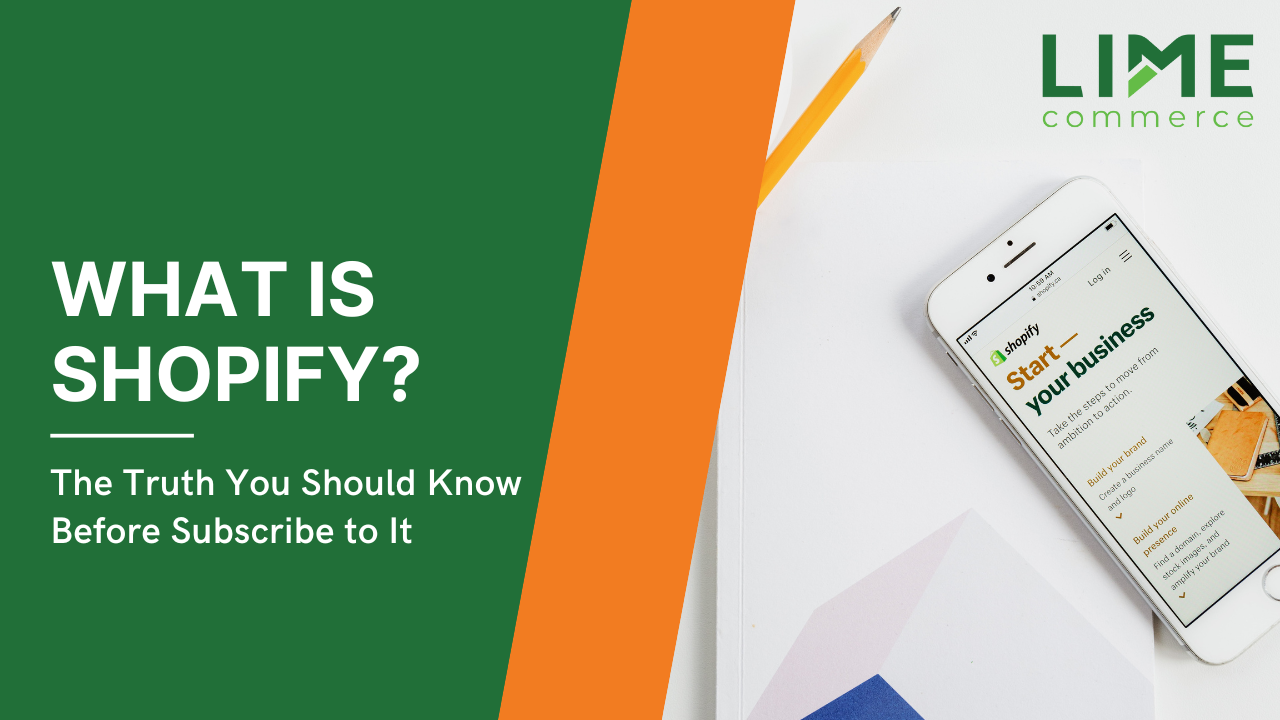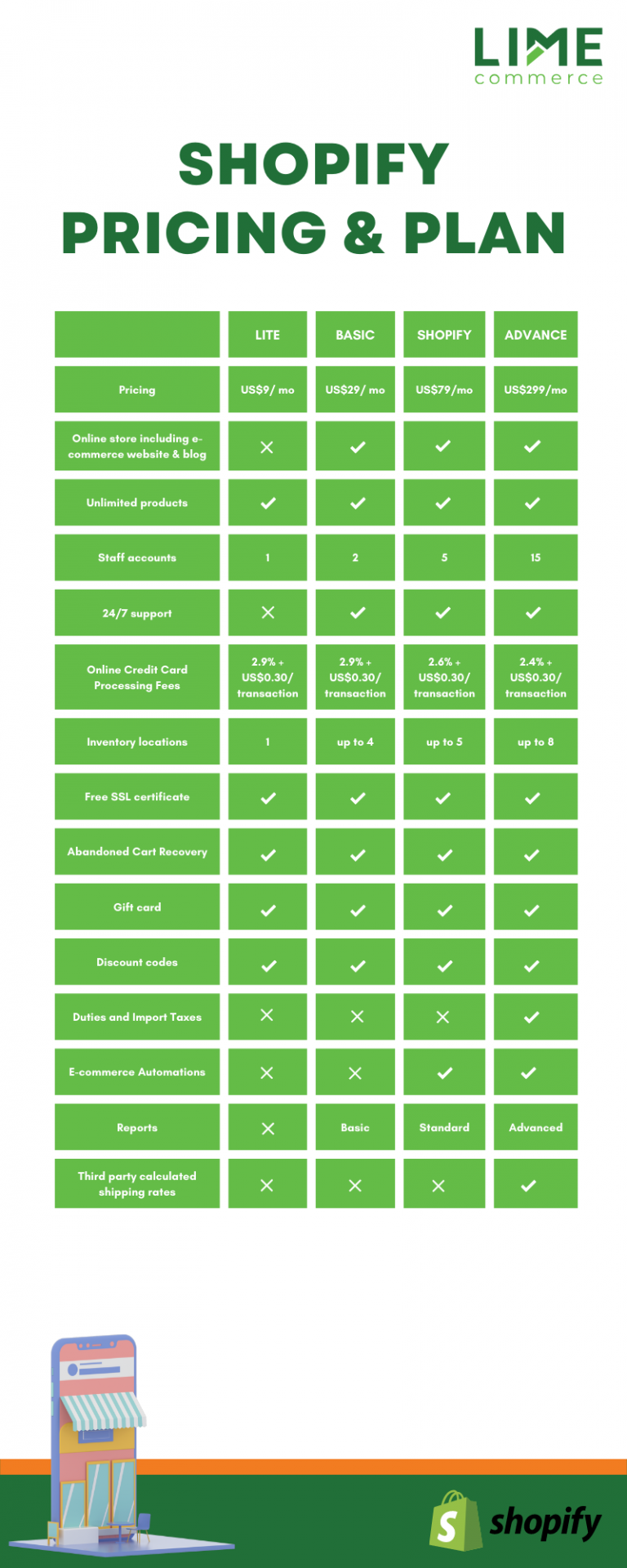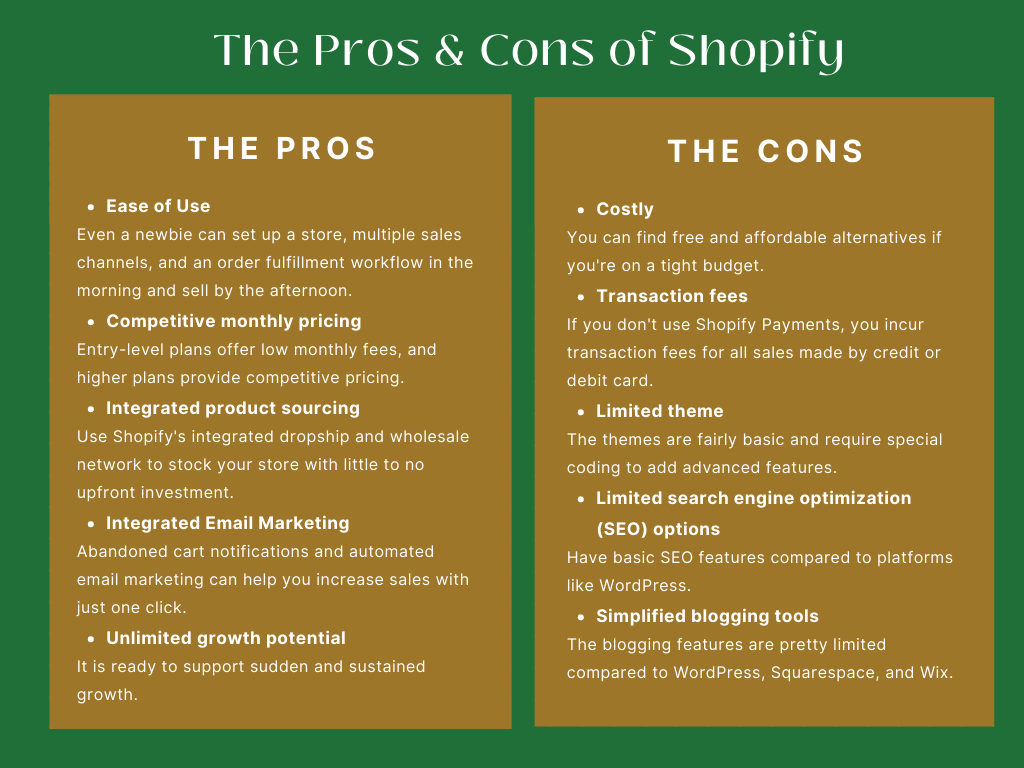
What Is Shopify? The Truth About Before You Subscribe it
10 October 2022
By attalime
If we talk about e-commerce platforms, everyone knows that there are tons of e-commerce platforms spread worldwide with its strength and weaknesses. One of the most popular is Shopify, the all-in-one commerce platform trusted by millions of merchants worldwide.
Some of you might already be familiar with Shopify, but others don’t. You might ask, what is Shopify? So, let’s dive deep into it in this article.
What is Shopify?
Shopify is a subscription-based Software as a Service (SaaS) selling platform. It enables small businesses to build an online store through one streamlined dashboard with user-friendly features.
It can bring the business to the next level by allowing merchants to build a modern online store and sell in multiple places from websites, in-person, pop-up shops, mobile commerce, brick-and-mortar store, and across channels such as social media and marketplaces.
Another thing is that Shopify helps businesses that sell virtually for all forms of items and offerings. And here is the list of what you can sell on Shopify.
- Service appointments
- Memberships
- Consultations
- Digital products
- Experiences
- Classes and workshops
- Rentals
- Quotes, estimates, and assessments
- Donations
- Event tickets
- Digital gift cards
- Live streams
Shopify Pricing and Plans
Shopify offers four standard store subscription plans with 24/7 support and various features for entrepreneurs, plus automatic updates to orders, products, and inventory. The higher tier plan, the more additional features are offered, such as shipping discounts and labels to fraud analysis and language translation. And here are the details of the pricing and plans.

How does Shopify work?
Shopify enables merchants to build and customize online stores and sell in multiple locations, including website, mobile, in-person, brick-and-mortar, and pop-up stores, across multiple channels, from social media to online marketplaces.
Being completely cloud-based and hosted, it can be accessed from any connected compatible device and handles software and server upgrades and maintenance. It allows access from anywhere with an internet connection. You’ll get the flexibility to run your business.
But on any given day, you will constantly need different tools to manage products, inventory, payments, and deliveries. It includes spending considerable time and money integrating various systems and data. And it integrates these technologies to give you easy access and integration with all the other business tools you need to make it work for your business.
It works by centralizing your product data, customers, and operational tasks in one system that seamlessly connects all your sales channels. Once you have what you need, they make exploring and expanding new product lines and sales channels easy.
And here are the step to use for your business.
1. Sign up for a free 14-day trial
The great news is Shopify offers a free 14-day trial. It is such as probation period to check whether it is a good fit for your business. And no worries because it doesn’t even ask for your credit card in advance.
2. Connect sales channels
The account setup wizard connects your first sales channel, which you can change and expand at any time. In the setup wizard, you can also connect your social media account if you want to sell through social media.
3. Insert product details or search for products to sell
The next step is to input your product details, prices, and images for products you manufacture or tap into Shopify’s Handshake wholesale network of drop shippers to find products for sale.
4. Set up the payment method
For international users, you can activate Shopify Payments with one click to start accepting payments immediately. And Indonesian merchants do not need to worry because it has partnered with leading international payment providers to support your sales efforts, such as Xendit, Midtrans, DOKU, and other payment gateways.
5. Setting up shipping options and taxes
After setting up the payment methods, you can set up shipping methods, fees, and applicable sales tax information under the Settings tab. Actually, you can start selling now because you have already set up your account to sell on various social media and marketplace channels, using the Buy Button tool and in-person with the POS card reader.
6. Setting up your Shopify online store
If you want to sell on your own branded designed website, the next step is to set up your online store. Again, it makes this easy with its selection of plug-and-play themes. These themes can be made unique with just a little setup and extra content.
7. Order processing, shipping, and tracking
Once the order is in, manage everything from your dashboard. Its built-in tools make it easy to set up efficient workflows for managing do-it-yourself orders, dropshipping products, and even virtual items like e-books and music downloads. Shopify also automatically emails order status and tracking information to customers.
Once you’ve completed all the basics of setup and workflow above, then you can experiment and explore promotional features, such as email marketing, abandoned cart remarketing, and blogging.
The Advantages of Shopify
Shopify is growing in popularity among online retailers worldwide, including in Indonesia. And below are the main reasons why it can help your e-commerce business succeed.
No technical expertise is required
Shopify is a great solution for you without the technical expertise to start a basic online store. It provides all software and hosting that makes it easier to set up and work. Besides, the hosting is faster and more secure than getting it yourself and can easily handle traffic spikes. It also manages software updates. Therefore, you can focus on selling without worrying about technical issues.
Safe and reliable
When running an e-commerce store, you will deal with sensitive customer information such as credit card details and other customer data. It means your website should be fast, secure, and always online. One of the great advantages of hosted solutions is the reliability they offer. It also handles all server maintenance and upgrades to keep your store available and your pages loading quickly.
And you can enable SSL certificates on your store to encrypt and transmit all data over secure connections because it also handles PCI compliance which is required if you provide credit card payment options.
Mobile first
Having a mobile-friendly website is important, not optional. Shopify is fully aware of this. That’s why all their themes are mobile-friendly, and the platform has a built-in free mobile commerce shopping cart. There are also free iPhone and Android apps to manage your shop on the go.
Customizable
The theme store has 160 free and paid themes, all mobile-friendly, with hundreds of themes available on sites like ThemeForest. You can easily and fully customize the theme by editing the code. So you can easily create a beautiful and unique online store that matches your brand identity.
Quick and easy to set up
Shopify provides an easy way to launch an online store without the server and development costs that can come with self-hosted platforms like Magento. All features are organized logically, making the administration interface clean, easy to use, and highly intuitive. You can also find extensive documentation and video tutorials on their website. All you really need is a product to sell.
Incredible Marketing and SEO Tools
Marketing is also essential in e-commerce, and Shopify makes that aspect much more manageable. It gives you access to many marketing tools, including social media, email marketing, product reviews, and more. You can also create discount coupons using its built-in tools. You can utilize it to create great landing pages for your Google Ads or PPC social ads. One of the main advantages is its powerful SEO features that help your website rank higher with spotless code.
Flexibility
One of Shopify’s best features is its versatility. It has many built-in tools that are easy to customize for your business. It also lets you showcase sale items, offer coupons, customize shipping options, and more. They also include convenient fulfillment, shipping, payments, and inventory management systems. You can also control the look and feel of your store with hundreds of professional and free themes that are highly customizable.
Example of Brands Using Shopify
With its capabilities and features, Shopify lets people build their own online store from the ground up. It is no wonder that many big and popular brands and companies use Shopify for their online shops.
-
Netflix

You might be curious, why is a streaming company like Netflix uses Shopify? Yes, Netflix chooses Shopify for their merchandise store since they have a solid fan base of Netflix series and movies. It sells themed apparel and lifestyle products to fans of shows like Stranger Things, Cobra Kai, Lupin, and The Witcher under Netflix.shop. Interestingly, the items on sale on the website are limited editions, so loyal fans are sure to snap them up enthusiastically.
-
Negative Underwear
Negative Underwear is a brand built on the message that women feel safe and comfortable in their underwear and bodies. They use Shopify and have been successful with a 150% increase in sales in just three years. They were a massive success and were out of stock for a year due to high sales demand and an even longer waiting list. One key secret is that this website’s navigation and text are easy. Get quick and easy access to any part of their website with a few clicks.
-
Taylor Stitch
Taylor Stitch sells men’s fashion, custom-made and made-to-order using the Shopify store since it opened in 2010. And three years after his launch with Shopify, Taylor Stitch’s sales he has exceeded US$15 million and is still growing. One key to success is understanding their customers to align their content, products, and business. Understanding what your customers want allows you to fine-tune your store to meet their needs and desires. In the end, it contributes to increasing store traffic and sales.
The Pros & Cons of Shopify
Shopify offers tons of selling options and deal management features but is it right for you? These pros and cons may help you make better decisions.

The Takeaways
Shopify is well-known for its ease of use and seamless connection to sales channels. Some shortcomings, such as simplified blogging features, limited store customization, and basic SEO tools, are masked by Shopify’s extensive sales features and core business management tools. It is suitable for small to medium businesses or startups looking for simplicity, reach, growth potential, and affordable prices. But if you’re looking for advanced features, you can choose Shopify Plus, which is way more costly than the standard plan.
Starting to consider Shopify for your business? Lime Commerce is here for you to help grow your business with Shopify. We are an official Exclusive Shopify Partner in Indonesia with over eight years of experience delivering excellence to our clients. Talk to us to consult or discuss how we can help accelerate your business growth.
